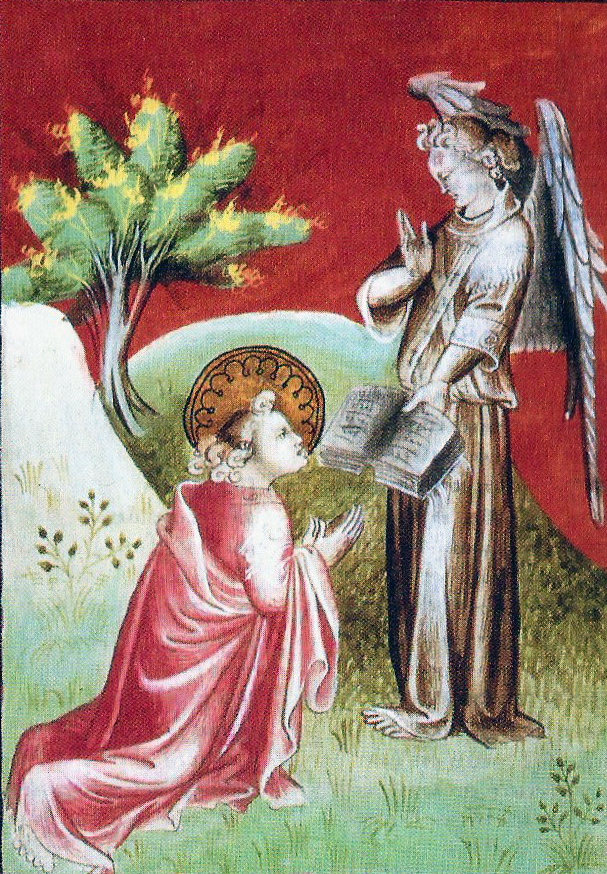
Editor’s note: Modern scholarship differs from the traditional view that the Book of Revelation was penned by John the Apostle. Taking into account the author’s infinite hatred of the Romans precisely in the aftermath of the destruction of the Temple of Jerusalem (‘lake of fire’, etc.), my educated guess is that ‘John of Patmos’ probably had Jewish ancestry.
______ 卐 ______
Below, abridged translation from the first volume of Karlheinz
Deschner’s Kriminalgeschichte des Christentums
(Criminal History of Christianity)
Anti-pagan hate in the New Testament
Paul’s preaching against the pagans was far more moderate than against ‘heretics’ and Jews. Often, he tries to counter them, and manifestations of clear preference in favour of ‘idolaters’ are not uncommon. Just as he wanted to be an ‘apostle of the Gentiles’, and says that they will participate in the ‘inheritance’ and promise them ‘salvation’, he also adhered to pagan authority, which he says ‘comes from God’ and represents ‘the order of God’ and ‘not from one who girds the sword’. A sword that, incidentally, finally fell on him, and that counting that, in addition, he had been flogged in three occasions despite his citizenship, and imprisoned seven times.
Paul did not see anything good in the pagans, but he thinks that they ‘proceed in their conduct according to the vanity of their thoughts’, ‘their understanding is darkened and filled with shadows’, have ‘foolish’ heart, are ‘full of envy’ with ‘homicides, quarrelsome, fraudulent and evil men, gossipers’, and ‘they did not fail to see that those who do such things are worthy of death.’
All this, according to Paul (and in this he completely agreed with the Jewish tradition so hated by him), was a consequence of the worship of idols, which could only result in greed and immorality; to these ‘servants of the idols’ he often names them with the highwaymen. Moreover, he calls them infamous, enemies of God, arrogant, haughty, inventors of vices, and warns about their festivities; prohibits participation in their worship, their sacramental banquets, ‘diabolical communion’, ‘diabolical table’, ‘cup of the devil’. These are strong words. And their philosophers? ‘Those who thought themselves wiser have ended up as fools’.
We can go back even further, however, because the New Testament already burns in flames of hatred against the Gentiles. In his first letter, Peter does not hesitate to consider as the same the heathen lifestyle and ‘the lusts, greed, drunkenness and abominable idolatries’.
In the Book of Revelation of John, Babylon (symbolic name of Rome and the Roman Empire) is ‘dwelling with demons’, ‘the den of all unclean spirits’; the ‘servants of the idols’. It is placed next to the murderers, together with ‘the wicked and evildoers and assassins’, the ‘dishonest and sorcerers… and deceivers, their lot will be in the lake that burns with fire and brimstone’ because paganism, ‘the beast’, must be ‘Satan’s dwellings’, where ‘Satan has his seat’.
That is why the Christian must rule the pagans ‘with a rod of iron, and they will be shredded like vessels of potter’. All the authors of the first epoch, even the most liberal as emphasized by E.C. Dewik, assume ‘such enmity without palliatives’.
One reply on “Kriminalgeschichte, 19”
I received another email comment from the commenter who doesn’t like to post it here:
This is why I write so much upon this topic: as thoughts occur to me as I do.
The Apocalypse of Saint John or “Revelations” as Protestants call it was written circa 100 A.D. … when Jerusalem had been destroyed. So Saint John is fantasizing about a New Jerusalem… which is probably the Jerusalem that we have today.
A Jewish Novus Ordō seclōrum… or New earth is increasingly being ruled by this city. The Kings of the earth fist the wailing wall… as prophesied in the Old Testament.
This shows the power of myth. In my view, the Bible is not a prophetic text: it is a blueprint.